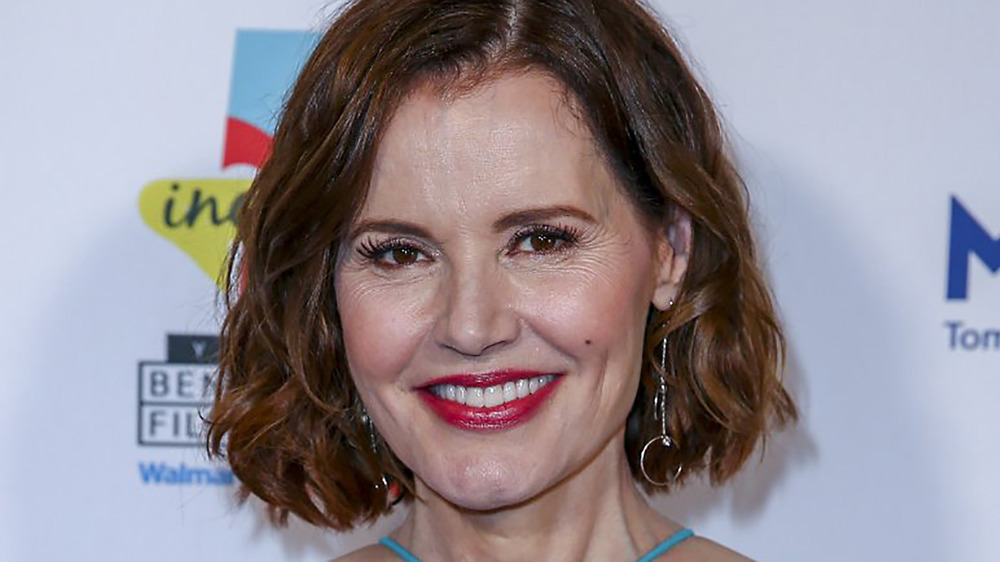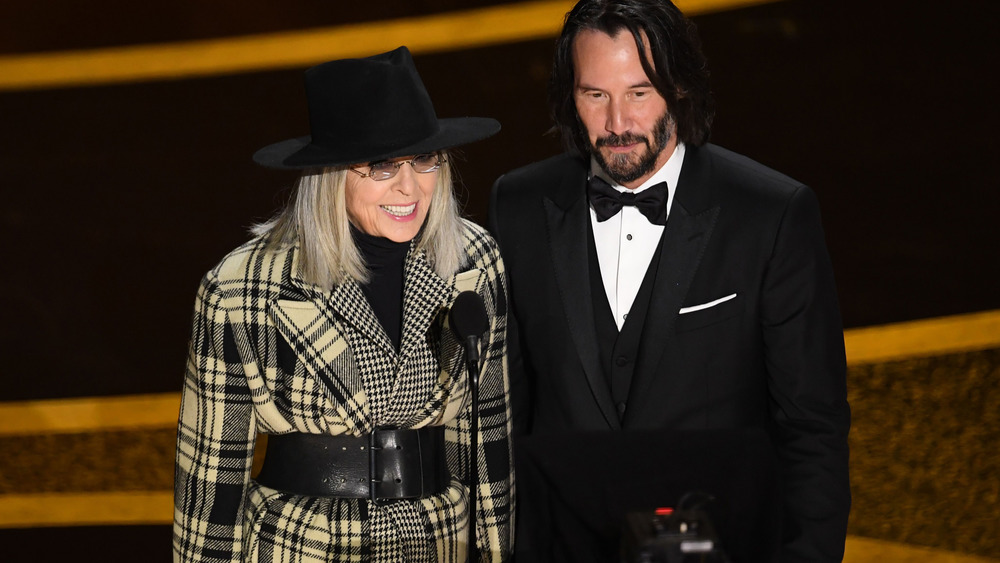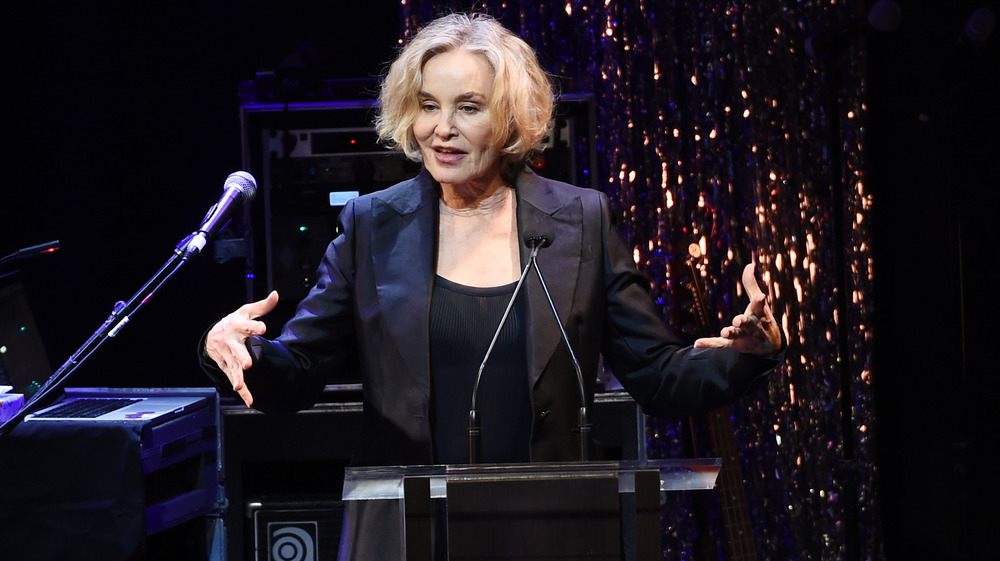The Real Reason We Don't See Women Over 50 In Hollywood Films
Michelle Pfeiffer. Sharon Stone. Holly Hunter. Emma Thompson. Meryl Streep. Julianne Moore (via IMDb). These actors might have been an indelible part of the entertainment landscape for decades, but we hardly see much of them today. Fellow thespian Geena Davis, who won an Oscar for The Accidental Tourist in 1989, a Golden Globe for drama Commander in Chief in 2006, and more than two dozen nominations spanning 30-plus years, might have an answer for that: the Ageless Test study.
The study on age and gender found that, among other things, no women over 50 were cast in leading roles in 2019, and when they did find their way onto the screen, they were given stereotypical roles that showed them stubborn, grumpy, and unfashionable. The study, designed to understand "whether media representations play a role in reinforcing harmful stereotypes of older adults," was conducted by TENA in partnership with the Geena Davis Institute on Gender in Media (via USA Today).
Davis: "I was taken aback by the study"
Researchers who undertook the Ageless Test study, whose findings they named "Frail, Frumpy, and Forgotten: A Report on the Movie Roles of Women of Age," say it's the first of its kind: a study which specifically focused on women over 50 in entertainment media.
The study focused on the top-ten grossing films of 2019 for the United States, the U.K., Germany, and France, and found that only one in four of these films passed the "Ageless Test," which required a film to feature at least one female character over the age of 50 who was 1) integral to the plot and 2) whose portrayal was not reduced to "ageist stereotypes." Nearly 50% of the films failed the test by including a stereotype, while 25% of the films studied had no female character older than age 50 at all.
Davis herself says she was taken aback by what she had seen. "I knew it was bad, but this really drove home how very dismal it is. If you look at lead characters in this study, there were no women, female characters over 50 leading. And it's a shame, I mean, there are significant sectors of our society that are significantly underrepresented and definitely age is one of them, particularly for women," Davis told People.
Ageism drives casting decisions
Researchers say the Ageless Test study proves how the entertainment industry helps to perpetuate stereotypes: "Our analysis in this study demonstrates that entertainment media reinforces ageism in society by erasing and stereotyping older adults, especially women." Because of this, the report says female characters are more likely to be portrayed as senile, sickly, unattractive, feeble, frumpy, lonely, and physically inactive versus their male counterparts.
But the study also says there is a way for the industry to combat and overcome these stereotypes, and these include casting more women over 50, increasing diversity, and staying away from stereotyping older characters. They also ask that older women be allowed to play characters with active sex lives.
Actress Jessica Lange reinforces this call, telling AARP Magazine, "Ageism is pervasive in this industry. It's not a level playing field. You don't often see women in their 60s playing romantic leads, yet you will see men in their 60s playing romantic leads with co-stars who are decades younger." She adds, "I think about how few wonderful actresses of my generation are still doing viable, important film work. You go to television. You go to the stage. You do whatever you can because you want to keep working."


